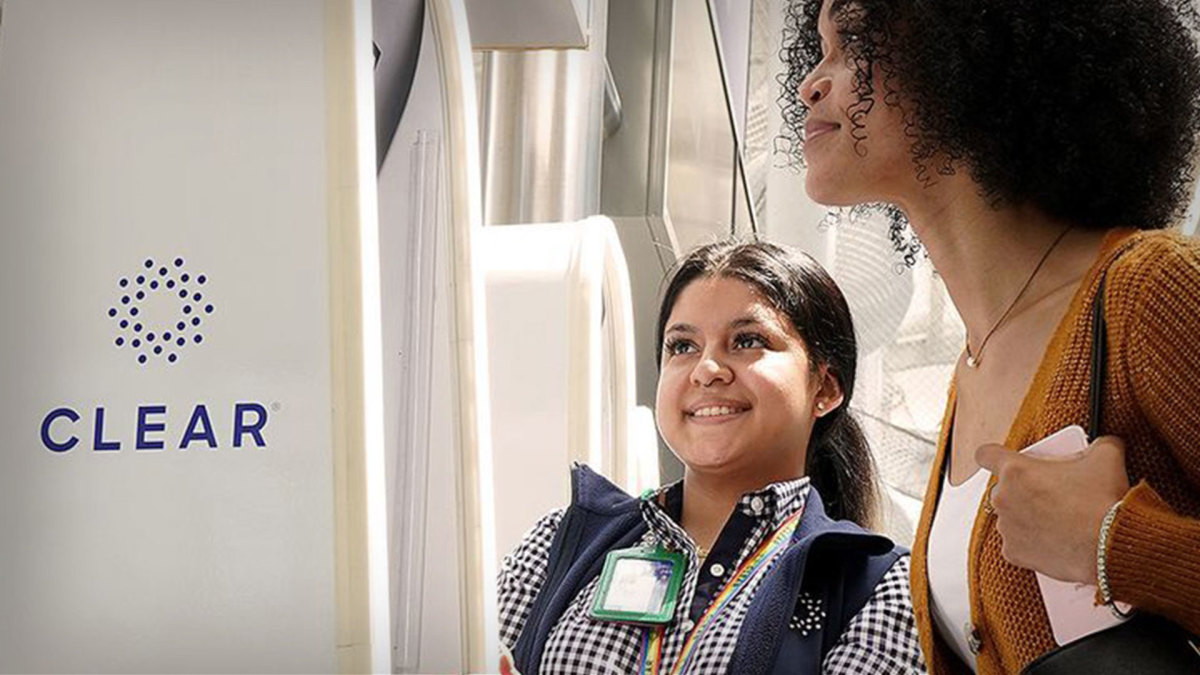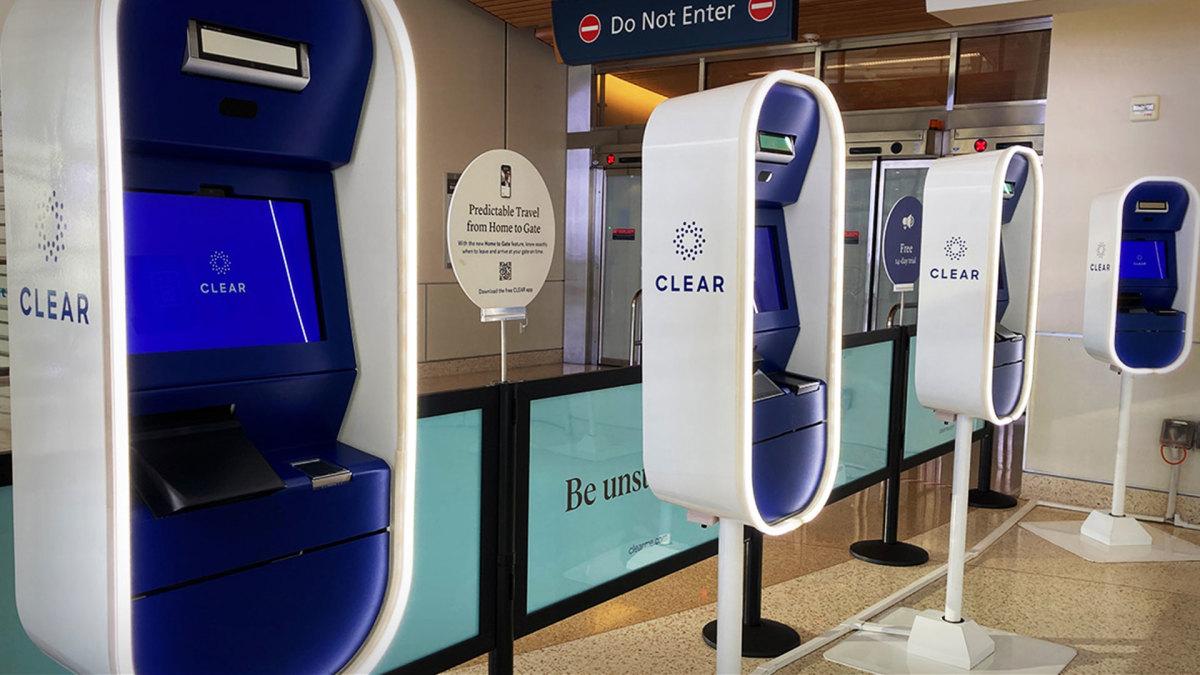
Those who joined the end of a long line for TSA security at JFK or many other airports across the country may have noticed posters offering a way to avoid this frustrating experience with a service called Clear.
Launched in 2010 after several stop-and-starts in the aftermath of 9/11 and going public 11 years later, the tech company created a service that allows one to bypass the general security line by submitting biometrics that will be recognized at dedicated Clear kiosks at different airports.
Related: Some will soon be able to self-serve themselves through airport security
While the company's popularity is what allowed it to go public with a $4.5 billion IPO in 2021, Clear has recently been facing a plethora of complaints from frustrated travelers.

Shutterstock
'The value just isn't there anymore,' frustrated traveler says
"The Clear lines are longer than the regular lines, with correspondingly longer wait times," one travel influencer wrote on X, the social media platform formerly known as Twitter, during the peak of holiday travel. "Why should I pay to wait longer to get through airport security? The value just isn't there any more."
More Travel:
- A new travel term is taking over the internet (and reaching airlines and hotels)
- The 10 best airline stocks to buy now
- Airlines see a new kind of traveler at the front of the plane
The service costs $189 a year but is often available for free or at a significant discount with different credit cards.
"The staff in the airport I worked in were miserable ... and not always that friendly with the customers (I made sure to be friendly and professional!)," one Redditor identifying themselves as a former Clear employee wrote on Reddit. "... But if my CC [credit card] didn't reimburse me for the cost, I would cancel Clear."
Another Redditor from the start of the year also wrote that the "CLEAR line is longer than the SkyClub line." (Delta (DAL) -) recently brought about the ire of its customers after trying to crack down on overcrowding at its lounges by making it even harder to earn access and bringing down the number of times those who have it can go in.)
Recent breaches catch the attention of lawmakers, security experts
As with most companies who use biometrics and private customer data, Clear has also received criticism from those with security concerns. The company is currently working on an upgraded facial recognition version that it calls Next Gen Identity+ and describes it as one's "highest fidelity digital identity." While approved by the TSA, several recent security breaches drew attention both to the risks of having someone with ill intent use it to bypass security for a flight and having one's biometric data at risk of hackers.
"We can't change our biometrics without extreme measures like burning off our fingerprints or getting extreme facial reconstruction surgery," Adam Schwartz, the primary privacy litigation director for the Electronic Frontier Foundation making a case against increasing digital surveillance, told the Washington Post. "Unlike other numbers that can be changed if we're a victim of a fraud or whatnot, we have our biometrics for life."
The issue has also recently caught the attention of some lawmakers who have campaigned against increasing use of biometrics.
"Congress needs to take a look at the security side," Congressman Wiley Nickel (D-N.C.) told Slate Magazine at the start of December. "The recent failures by Clear are very concerning."







